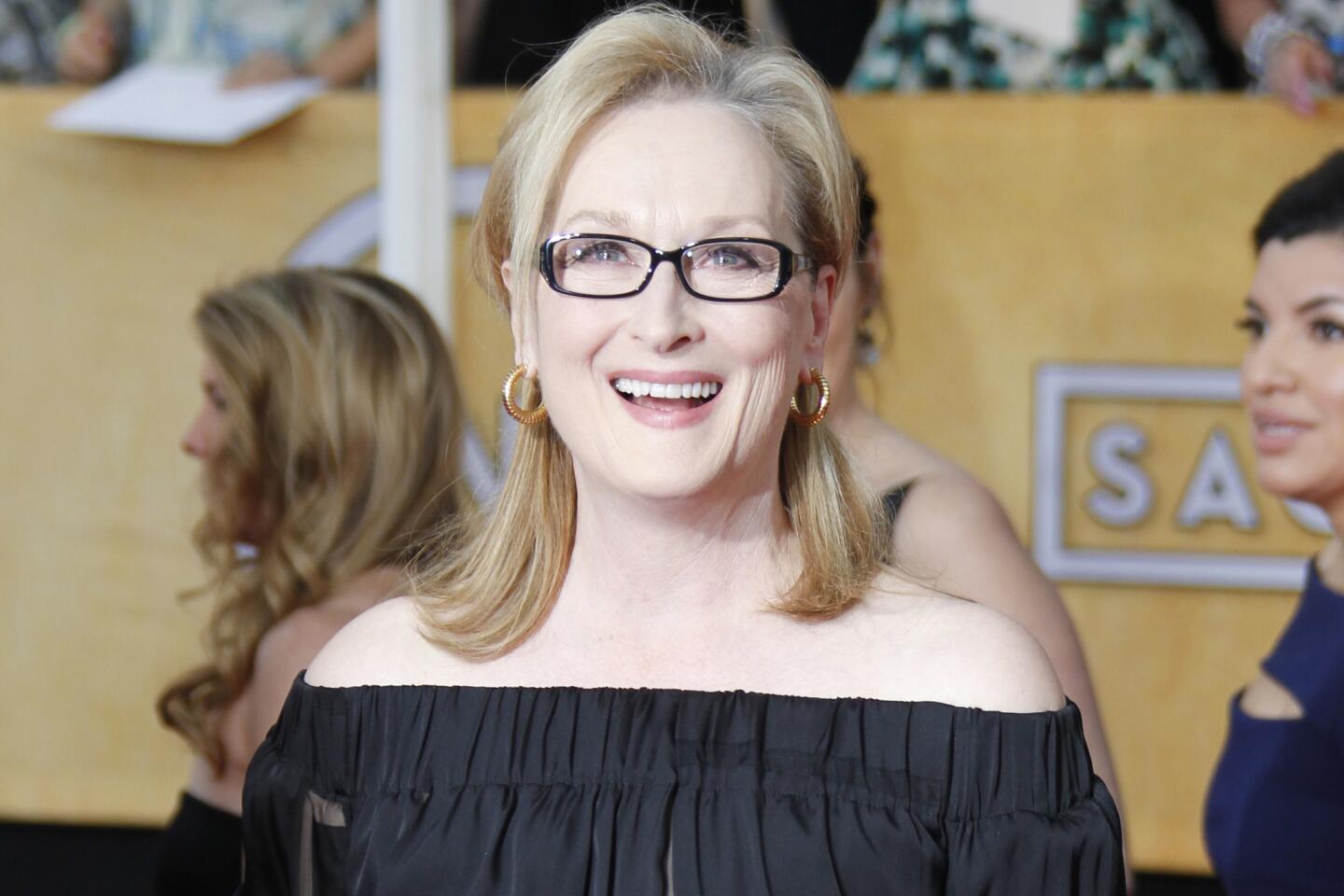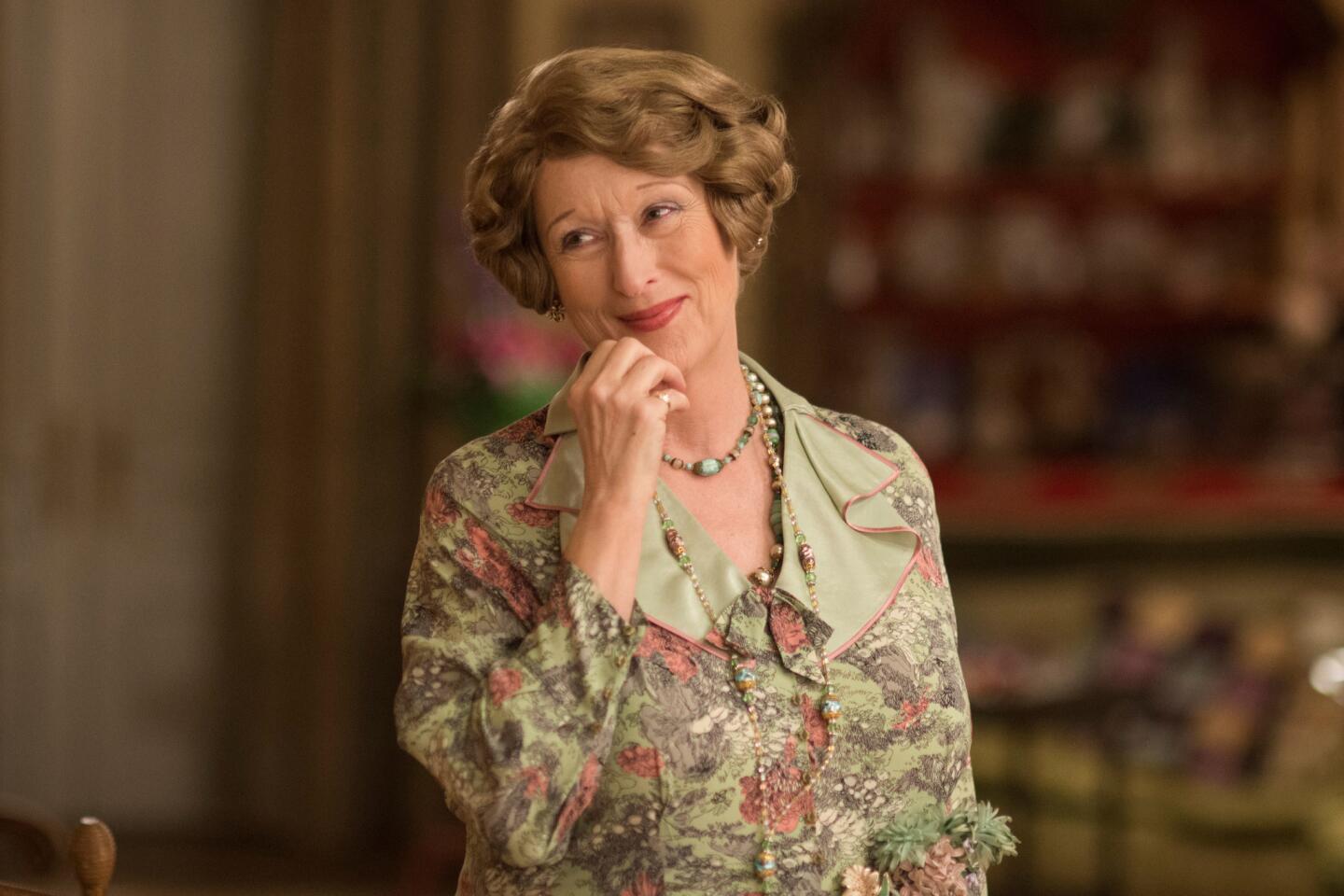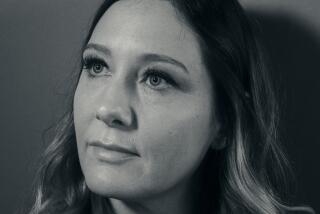Julianne Nicholson gets fierce in ‘August: Osage County’
Chalk one up for self-determination: The lovely Julianne Nicholson spent much of her childhood in a cabin in rural Massachusetts that lacked water and electricity — her mother relocated there after her parents divorced — before finding the spunk to move to New York City on her own at 18 to pursue acting. “I always knew I wanted to act, but I didn’t how you did that,” Nicholson says. Apparently, she has figured it out. She currently plays Lillian DePaul on the acclaimed Showtime drama “Masters of Sex” and has a key role in the upcoming Sundance Channel series “The Red Road.”
And now, amid the star-packed ensemble of “August: Osage County,” the film coming out on Christmas that’s based on the Pulitzer Prize-winning play, she stands out. As Ivy, the dutiful daughter who finally asserts herself amid the bitter dynamics of a family gathering, she’s singled out as “a quiet revelation” by the Hollywood Reporter. We caught up with the actress shortly after the movie’s gala premiere at the AFI Film Festival.
ENVELOPE SCREENING SERIES: Watch cast and crew discuss ‘August: Osage County’
Everyone is talking about “the catfish scene,” in which, in an angry fit, you and Meryl Streep and Julia Roberts smash your plates on the floor. It has the makings of a cult classic. What was it like to film?
It was terrifying! It’s really hard — the language is so precise, and the energy is so fierce and overlapping. Luckily, we all felt a little afraid of it, so we ran lines the night before.
Just the three of you? Where?
At Meryl’s place in this little complex where we were all staying. Ding-dong! [airy voice] “Hey, Meryl!” I was trying to play it cool, but I was definitely dying inside. And then I wasn’t. I just felt excited. We ran the lines, and just did it again and again. Being at her table with them was so special — it gave me validation in the crazy belief I’ve had from the start that I could do this.
In the scene, Roberts keeps trying to shut you down so an ugly truth doesn’t come out, and then Streep drops the bomb, and you react so deeply. Is that the moment you built your performance toward?
I think so. There are other moments in the film that are really sad — I mean, the death of a parent informs everything — but John Wells, the director, encouraged me not to get too emotional so that it could all come out in that scene. I’m really grateful for that.
TIMELINE: The Academy Awards through the years
When your character, Ivy, is shaken by efforts to keep her away from her boyfriend and drives away, do you know where she’s heading?
I don’t think she knows. Just away. People ask me, do you think she went through with it anyway — went away with Little Charles? I left that unanswered, even for myself. I don’t want to know. That’s a little secret for Ivy.
What was your favorite scene to film?
The dinner table scene, after the funeral. It took four days to shoot. To be at that table, surrounded by that entire cast, was breathtaking and surprising, every day. I sat next to Meryl Streep! That was pretty great.
What did you learn from her?
Preparedness. What she does is different every time, but she knows so deeply who her character is, that anything that happens is that character. It’s crazy. And she just has an energy, a sparkle. That raspy, smoker’s laugh she does is brilliant — it gets me every time.
INTERACTIVE: Best and worst Oscar moments since 2008
You’re also in “Masters of Sex,” my new favorite cable show, about the pioneering sex researchers Masters & Johnson. You play your character, Dr. Lillian DePaul, as very closed off emotionally.
Yes! I was just watching it with my sister, and I was like — woof! Icy!
Is that how she’s always going to be? Virginia (Lizzy Caplan) tries to do the sisterhood thing with her, and she just shuts her right out.
I kind of love that. She’s worked so hard to be able to wear that white coat — I can see why she’s furious that this cutie thinks she can just sashay into that world and be accepted. But there’s going to be more to Dr. DePaul. Things really pick up for her starting around Episode 8.
What has made a difference in your career?
I met a manager, Davien Littlefield, who took me on a “we’ll see” basis, and I’m still with her today. She encouraged me to do the work that I responded to, not just work for the sake of working, even when I was still waitressing. To have someone you trust and respect tell you that you can have the courage to say no, and you’ll be fine, is huge.
More to Read
Only good movies
Get the Indie Focus newsletter, Mark Olsen's weekly guide to the world of cinema.
You may occasionally receive promotional content from the Los Angeles Times.












